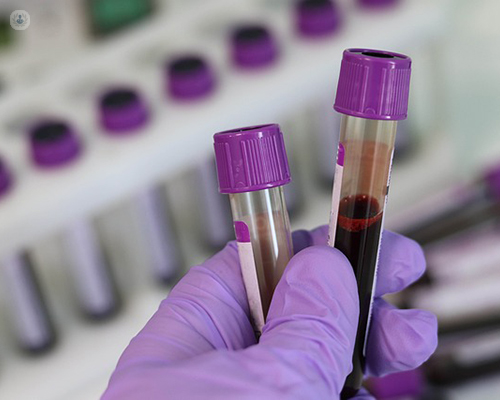Antineutrophil cytoplasmic antibodies testing
What is analysed in antineutrophil cytoplasmic antibodies testing?
Antineutrophil cytoplasmic antibodies (ANCA) are antibodies that target the cytoplasm of neutrophils, a type of white blood cell. This analysis involves detecting the presence of these antibodies in a patient's blood.

How are the results interpreted?
A positive result indicates the presence of ANCA in the blood. The specific pattern and type of ANCA can provide insights into various autoimmune vasculitides, such as granulomatosis with polyangiitis (GPA) or microscopic polyangiitis (MPA).
What is the purpose of the analysis?
ANCA analysis is performed to diagnose and monitor autoimmune vasculitides. Identifying these antibodies helps in confirming the presence of autoimmune responses targeting blood vessels.
Timing of the analysis
ANCA analysis is typically requested when there are symptoms and clinical signs suggestive of vasculitis, such as persistent fever, weight loss, joint pain, and organ involvement. It is an essential component of the diagnostic workup for suspected autoimmune vasculitides.
Sample requirements
A blood sample is required for ANCA analysis. This involves a standard blood draw, and no specific sample preparation is necessary.
Preparation requirements
No specific preparation is needed for ANCA analysis. Patients can undergo the blood draw without fasting or making any special arrangements.
How are the results analysed?
ANCA analysis results contribute to the overall diagnostic process. Positive results, along with clinical and imaging findings, help healthcare professionals confirm the diagnosis of autoimmune vasculitides and guide appropriate treatment strategies.
Normal values
Normal values for ANCA analysis are typically reported as negative. Reference ranges may vary between laboratories, and a negative result suggests the absence of detectable antineutrophil cytoplasmic antibodies.
Significance of altered values
Elevated levels of ANCA are associated with autoimmune vasculitides. The specific pattern and type of ANCA can provide valuable information about the underlying condition and guide further investigations and treatments.
Reference Table

This reference table provides a concise overview for healthcare professionals, summarising the interpretation of ANCA analysis results for different types.